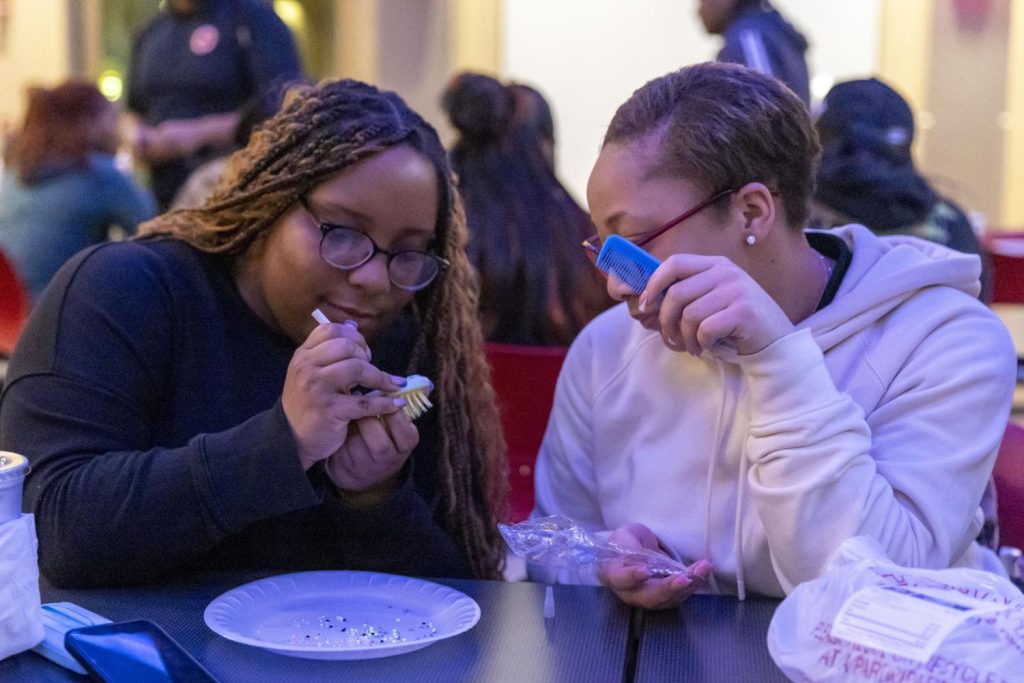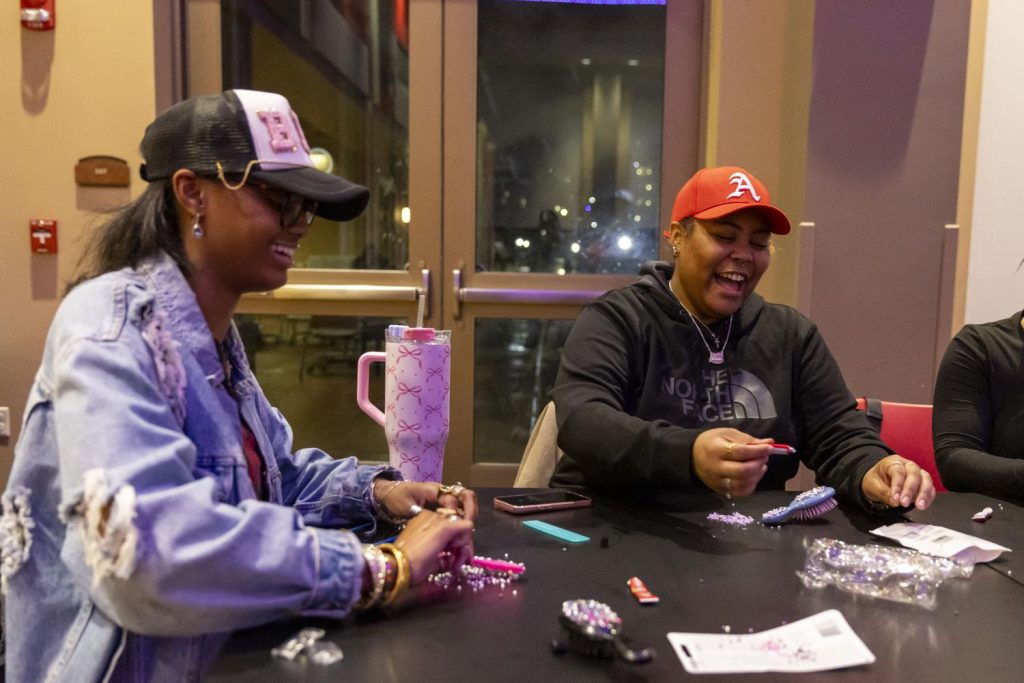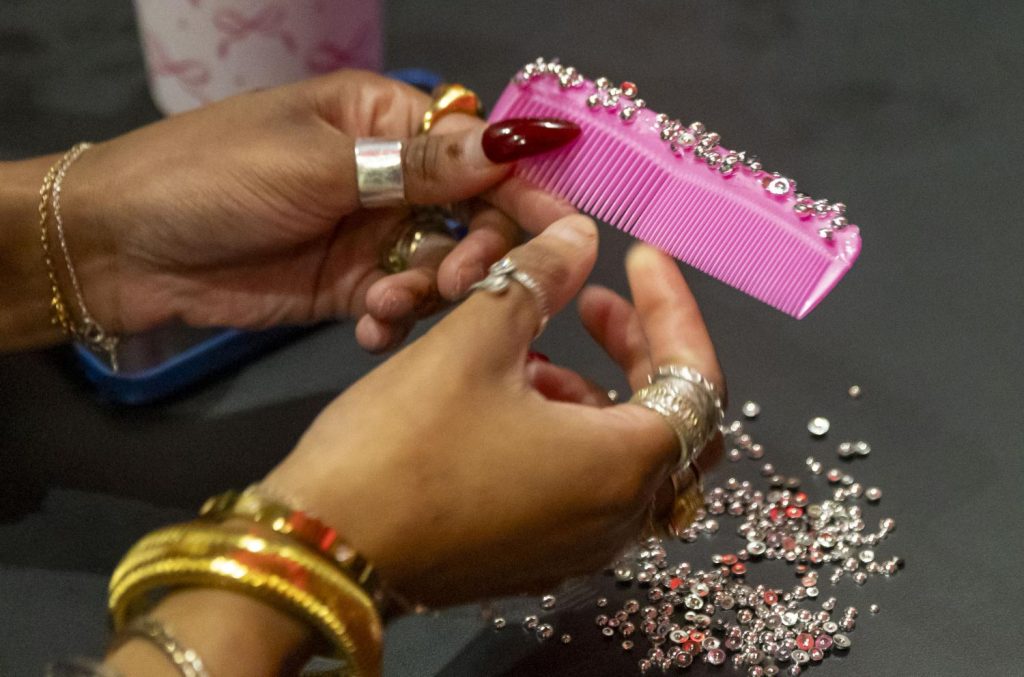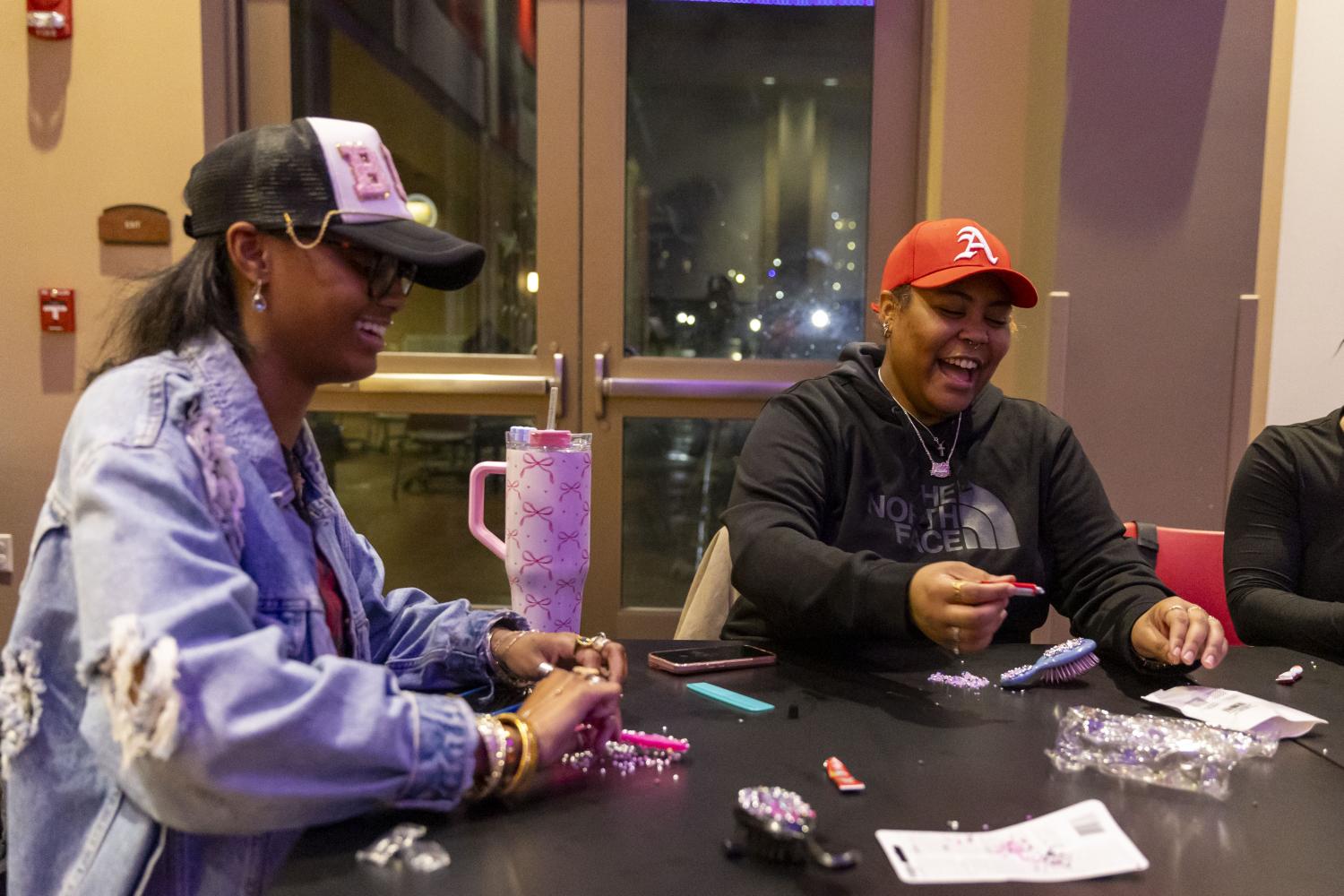In a world where Black hairstyles have often been politicized and stigmatized, students took a stand on Wednesday, Feb. 12, gathering for the “Don’t Touch My Hair” event at DSU to celebrate Black History Month and address the challenges that come with hair discrimination.
The event was presented by the Omega Delta chapter of Zeta Phi Beta Sorority Inc., and the Eta Zeta chapter of Delta Sigma Theta Sorority Inc. Senior and Eta Zeta Chapter President Hannah Turner said the event’s focus was to help people feel confident in their hair. She said the sororities wanted to educate the community on hair care and redefine self-image.

Students hosting the event gave a presentation on the importance of hair in the Black community. The presentation explains that the federal CROWN Act, created in 2019, was enacted after Black women experienced discrimination due to their hair.
The CROWN Act stands for “creating a respectful and open world for natural hair,” according to Legal Defense Fund. This act ensures protection against discrimination on the basis of race pertaining to hairstyles in all public spaces.
Legal Defense Fund stated that Dove conducted a study on the level of discrimination Black women face in office settings. Dove concludes that Black women are more likely to experience discrimination and be sent home from work because of their hair, leading to the passing of the CROWN Act.
The CROWN Act is being advocated for passage on a state-by-state level to all 50 states, according to the Legal Defense Fund. Currently, more than 24 states have enacted the CROWN Act. More than 40 municipalities have enacted the CROWN Act. More than 30 states have pre-filed, filed or plan to introduce the legislation.
Senior Arianna Pierson from White House, Tennessee, said many people feel pressured to change their hair to meet society’s standards. She said Black women can be treated differently in public spaces which forces them to think they have to change.
“I have had a job interview when I had braids in my hair,” Pierson said. “They told me I had to take them down.”
The Legal Defense Fund states that when Black hairstyles are banned, individuals resort to using chemicals and heat that is damaging to hair. Senior and Omega Delta Chapter President Baylee Ervin from Louisville said that it is essential for Black women to moisturize their hair and take vitamins. This can help with hair health and growth.
“I didn’t do anything to my hair for a year straight, and it finally grew,” Ervin said. “African American hair takes a lot longer to grow than other hair textures; maintenance is key.”
Pierson said that it can be trial and error when finding a hairstyle that suits a person best, whether it’s natural hair, braids or another style.
Black hair types are classified by numbers, according to Wimpole Clinic. Most hair types are classified as straight hair (1A-1C), wavy hair (2A-2C), curly hair (3A-3C) and coiled hair (4A-4C).
“I prefer for my hair to be in bohemian box braids,” Pierson said. “Preference for people is based on what hair type you have.”
The event also offered interactive crafts, such as decorating a comb. Sophomore Brittany Sadler from Louisville said she attended the event and was decorating her comb to be able to connect with people whose cultures are similar to hers.


“Hair is just hair, but it also allows us to express ourselves and our inner characters,” Sadler said.
Bowling Green resident Camryn Douglas said being able to learn tips from Black women at the event was important.
“I cut my hair last year, and it was a big difference,” Douglas said. “I had to learn how to love myself all over again.”


